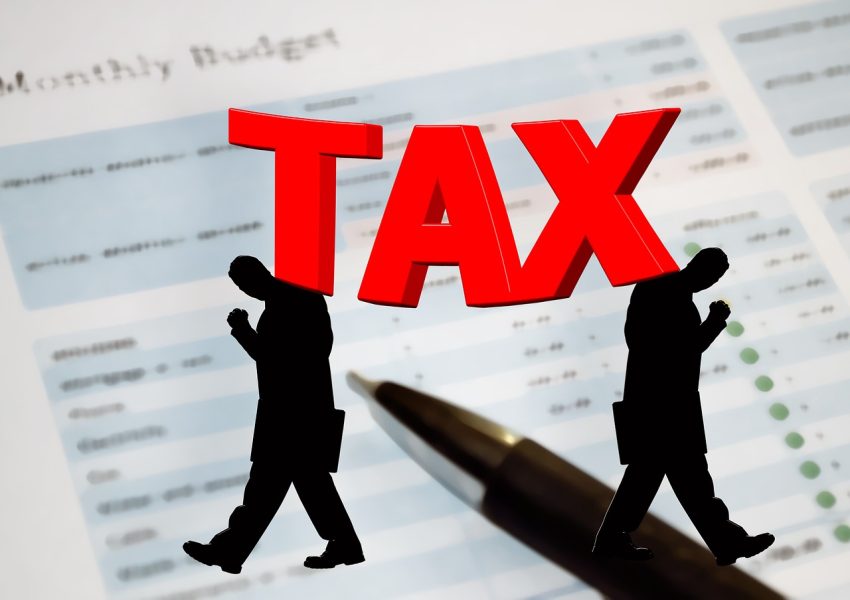Abstract
This article discusses the strategic role of taxes in promoting economic stability and emphasizes the importance of active participation of citizens in paying taxes for the progress of the nation.
Taxes play an important role in generating government revenue, funding public services, regulating economic activities, by exploring the benefits of taxes in funding public services, and ensuring social welfare, this article aims to inspire individuals to fulfill their tax obligations as a means to contribute to the growth and prosperity of the nation as a whole and the strategic role of tax in building and maintaining economic stability.
implications related to taxation, policy makers can utilize tax policies to promote sustainable economic growth and stability.
Keywords: Taxes, Public services, Infrastructure Development, Economic Stability, Paying Taxes, Strategic Role.
Introduction
Taxes are more than a financial obligation; Taxes are a powerful tool for building and maintaining economic stability. This article emphasizes the notion of “we pay our taxes for us” and how it can promote progress and development of a nation.
Economic stability is essential to the well-being of a country, and taxes serve as an important tool in achieving this stability. tax strategy and its impact on the development and maintenance of economic stability.
Discussion
The Important Functions and Roles of Taxes in Building and Maintaining Economic Stability to Encourage the Nation’s Progress are as follows
1. Public Service Financing
One of the fundamental roles of taxes is to generate revenue to fund essential public services such as education, healthcare, transportation and public safety. social welfare programs by Guaranteeing Social Welfare Taxes play an important role in creating a safety net for vulnerable members of society.
Government-funded social welfare programs, including unemployment benefits, health care subsidies, and assistance to low-income individuals, depend on tax revenues. Paying taxes allows us to actively contribute to the welfare and social progress of our fellow citizens.
By fulfilling our tax obligations, contributing directly to the availability and quality of these services, which benefit ourselves and our communities and as a major source of government revenue, for infrastructure financing, in financing infrastructure projects that contribute to economic growth and competitiveness.
Roads, bridges, airports and other critical infrastructure are often funded through revenue-supported public investments tax. Paying taxes ensures the availability of well-maintained infrastructure that enhances the overall business environment and facilitates economic progress.
By ensuring a consistent and adequate revenue stream, taxes play an important role in maintaining fiscal stability and supporting economic development.
2. Regulation of Economic Activities
Taxation serves as an effective means of regulating economic activity. Governments can use tax policies to incentivize or discourage certain behaviors and sectors. For example, tax breaks can encourage investment in certain industries, while higher taxes on dangerous goods improve public health and environmental sustainability.
3. Balancing Fiscal Policy
Taxation is an integral part of fiscal policy, which aims to stabilize the economy and manage public finances. By adjusting tax rates and structures, governments can influence aggregate demand, control inflation and stimulate economic growth. This article explores how strategic tax policies contribute to macroeconomic stability.
Strengthening Fiscal Stability A well-functioning tax system ensures fiscal stability, which is essential for sustainable economic growth. Taxes help governments manage public finances, control budget deficits, and reduce public debt burdens.
By meeting our tax obligations, we contribute to maintaining a stable economic environment that attracts investment and stimulates business activity.
Baca Juga: https://mahasiswaindonesia.id/kabag-umum-kanwil-dirjen-pajak-dicopot-dari-jabatannya-kenapa/
4. Fighting Inequality in Income Distribution and Social Equality
Taxes can play an important role in income distribution and reducing the wealth gap. A progressive tax system, in which high-income individuals are taxed at a higher rate, contributes to a more equitable distribution of wealth.
This article analyzes the impact of tax policies on income redistribution and social cohesion. This approach promotes social justice by redistributing wealth and reducing wealth disparities. Paying taxes ensures that everyone contributes proportionately to the needs of society, promoting a more just and inclusive society.
5. Encouraging Compliance and Fighting Tax Evasion
Efficient tax administration, enforcement, and compliance are critical to maintaining economic stability. The government needs to build a strong system to ensure fair tax collection A transparent and accountable tax system builds trust between citizens and the government.
When tax revenues are managed and allocated effectively to public services, it enhances transparency and accountability. By paying taxes, we encourage the government to maintain transparency and efficiency in managing public funds.
6. Taxation and International Cooperation
In an interconnected global economy, international tax issues have a significant impact on economic stability. Cooperation between nations is critical to combating tax evasion, preventing harmful tax practices and promoting a level playing field. This article explores international tax frameworks and the importance of cooperation to maintain economic stability.
7. Future Perspectives and Policy Recommendations in Fostering Citizenship Responsibility and National Pride
The article concludes by highlighting emerging trends and challenges in taxation and economic stability. It offers policy recommendations, including simplifying the tax system, promoting digital taxation, improving international tax coordination, and investing in tax administration capacity.
Paying taxes is not only a legal obligation but also a reflection of our commitment to the progress of the nation. By fulfilling our tax obligations voluntarily and responsibly, demonstrating our civic duty and contributing to the collective well-being of our society. This sense of responsibility fosters national pride and strengthens social cohesion.
Conclusion
Paying taxes is a strategic and essential contribution to building and maintaining economic stability. By fulfilling our tax obligations, actively participating in funding public services, promoting infrastructure development, ensuring social welfare, and fostering a just and prosperous society. Let’s embrace the concept of “we pay taxes for us” acknowledging the positive impact our tax contributions have on the progress and prosperity of the nation.
Penulis:

Rohmawati Berutu
Mahasiswa Program Studi Ilmu Hukum Fakultas Hukum Universitas HKBP Nommensen Medan
Editor: Ika Ayuni Lestari
Bahasa: Rahmat Al Kafi
Bibliography
Book source:
1. Book: “Taxation and Economic Development: The State of the Economic Literature” by Timothy Besley and Torsten Persson.
2. Book: “Public Finance and Public Policy” by Jonathan Gruber.
Journal source:
1. Journal article: “The Role of Taxation in Economic Development” by James Alm and Sally Wallace (Journal of Economic Literature, Vol. 31, No. 2, 1993).
2.Journal article: “Taxation and Economic Growth: A Dynamic Simulation Model Approach” by Hashmat Khan and Abeer Reza (Journal of Economic Dynamics and Control, Vol. 33, Issue 1, 2009).
3.Journal article: “Taxation, Government Spending, and Economic Growth” by Alberto Alesina and Silvia Ardagna (Economic Policy, Vol. 20, Issue 42, 2005).
Report source:
1.Report: “Taxation and Economic Growth” by the International Monetary Fund (IMF, 2014).









